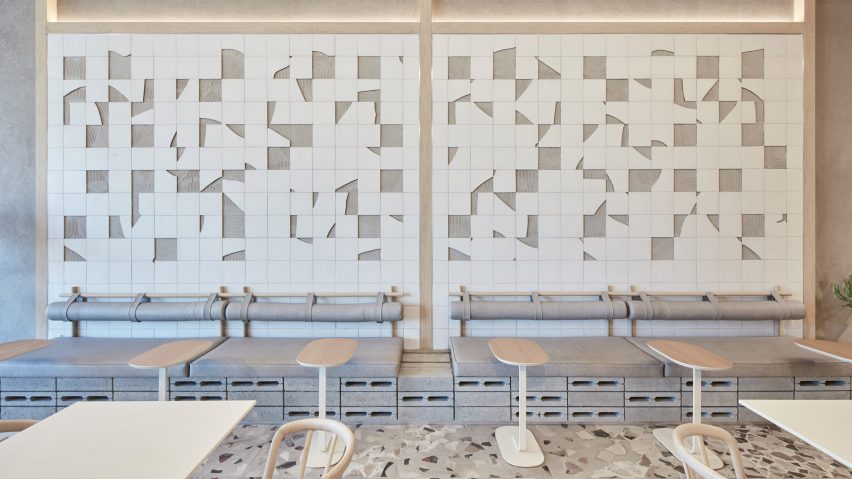
Roar Studio decorates Dubai cafe with terrazzo flooring and broken ceramic tiles
Design office Roar Studio combined industrial materials such as concrete and stainless steel with decorative terrazzo and broken ceramic tiles for Drop Coffee, a cafe in Dubai's Dar Al Wasl Mall.
The Dubai-based studio was asked to design an interior that would suit the flow of visitors to the cafe, who enter the space from two different entrances – one connected to the outdoors and one to the mall.
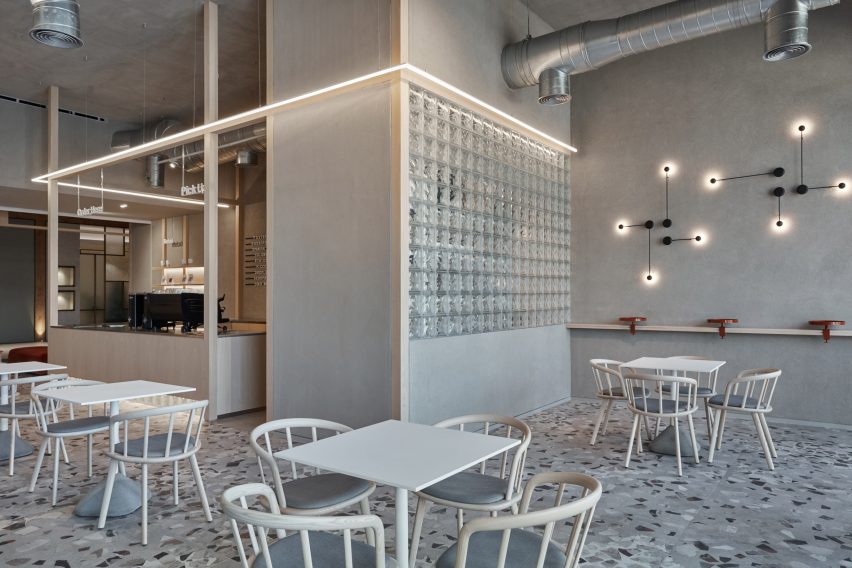
It chose to keep the design simple by focusing on the materials used and framed the bar area of the cafe in pale wood and LED lights to create an eye-catching centrepiece.
"This is the second outlet for this homegrown Emirati brand," Roar Studio founder Pallavi Dean told Dezeen.
"Their main drive was to achieve a minimal space where the coffee bar is a central feature and creates a theatrical moment – the making of the coffee is at the front and centre stage."
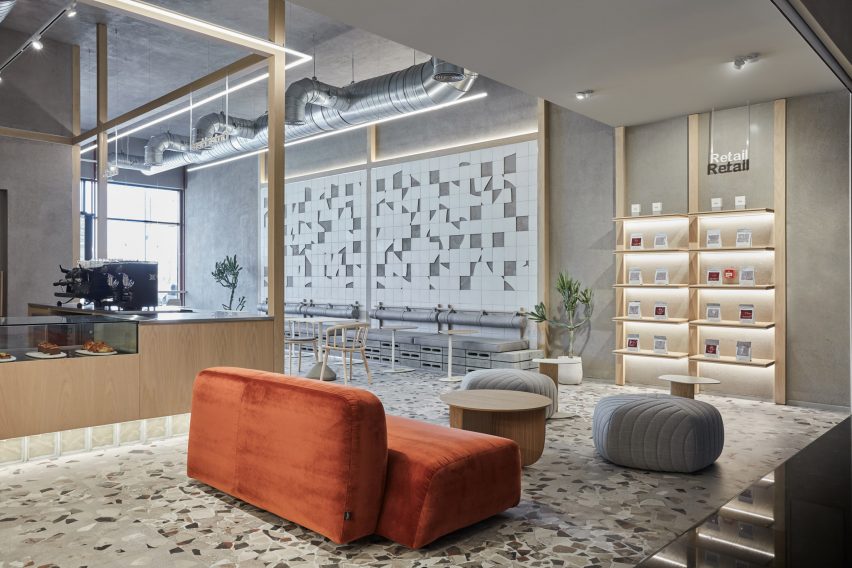
The ceiling of the cafe is concrete and the studio also painted the walls with a concrete paint finish, which is complemented by a terrazzo-effect tiled stone floor in grey and white hues.
Its colours and shapes are picked up on the main wall, which was decorated with a mosaic of broken ceramic tiles that form an abstract pattern similar to the floor.
"We sourced basic white tiles from Rakceramics – a local manufacturer – which were then broken on-site to compose a patterned wall," Dean explained.
"We aren't trying to reinvent the wheel by using broken tiles – our idea was to form a counterpoint to the terrazzo effect porcelain flooring as though the chips of the broken tiles were used in the flooring."
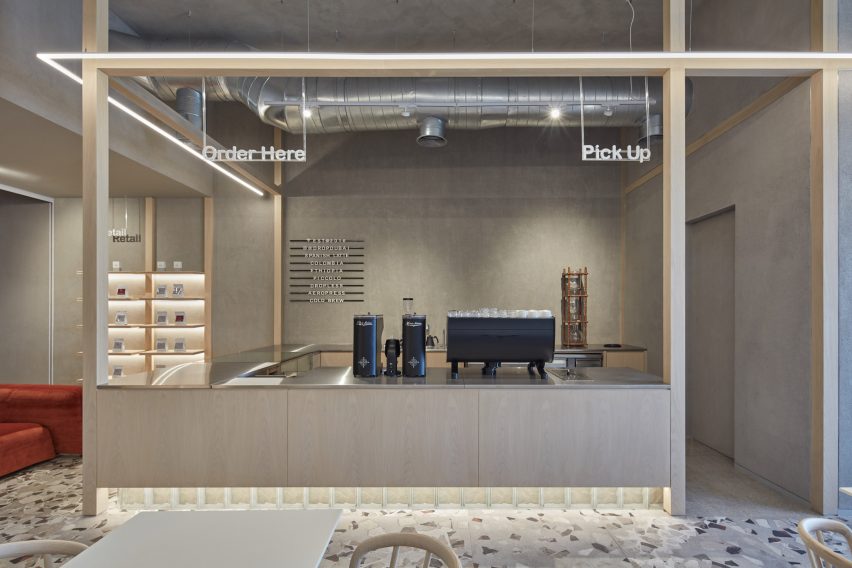
A large counter in pale wood is connected to the ceiling by beams in the same material, framing the bar area of the store. The counter is covered in stainless steel, which was chosen for both practical and aesthetic reasons.
"The coffee bar has a stainless steel countertop which is extremely sturdy and hygienic but also allows the light to bounce through the space because of its reflectivity," Dean said.
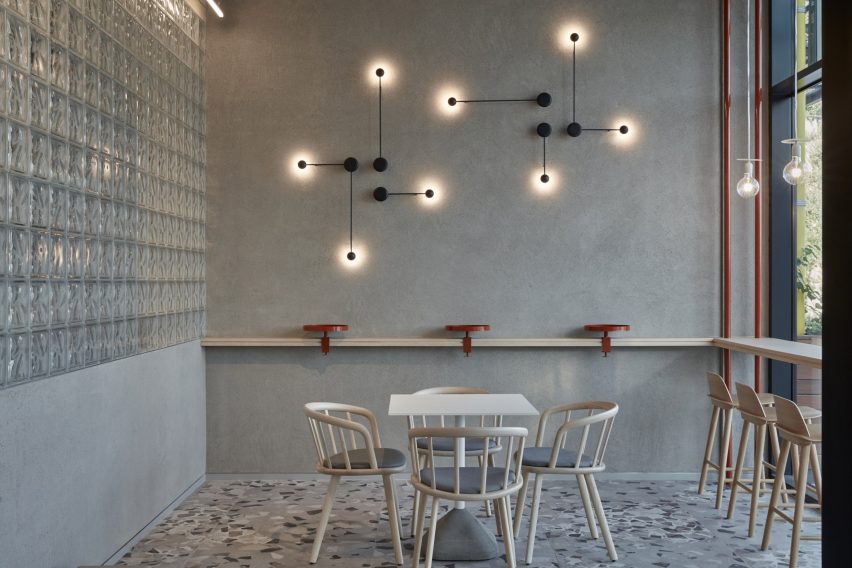
Around the base of the bar, lighted skirting made out of glass blocks give the impression that it is floating above the ground. By the side of the bar, the enclosed kitchen area features a wall made from matching glass blocks, enabling visitors to see the silhouettes of Drop Coffee's staff while they work.
The studio also chose to work with certain materials to help create a less noisy atmosphere for the visitors.
"The ceiling is acoustic foam sprayed, an effect that adds to the industrial aesthetic and helps muffle the noise in the open-plan space – not to mention the noise generated by the coffee machines," Dean explained.
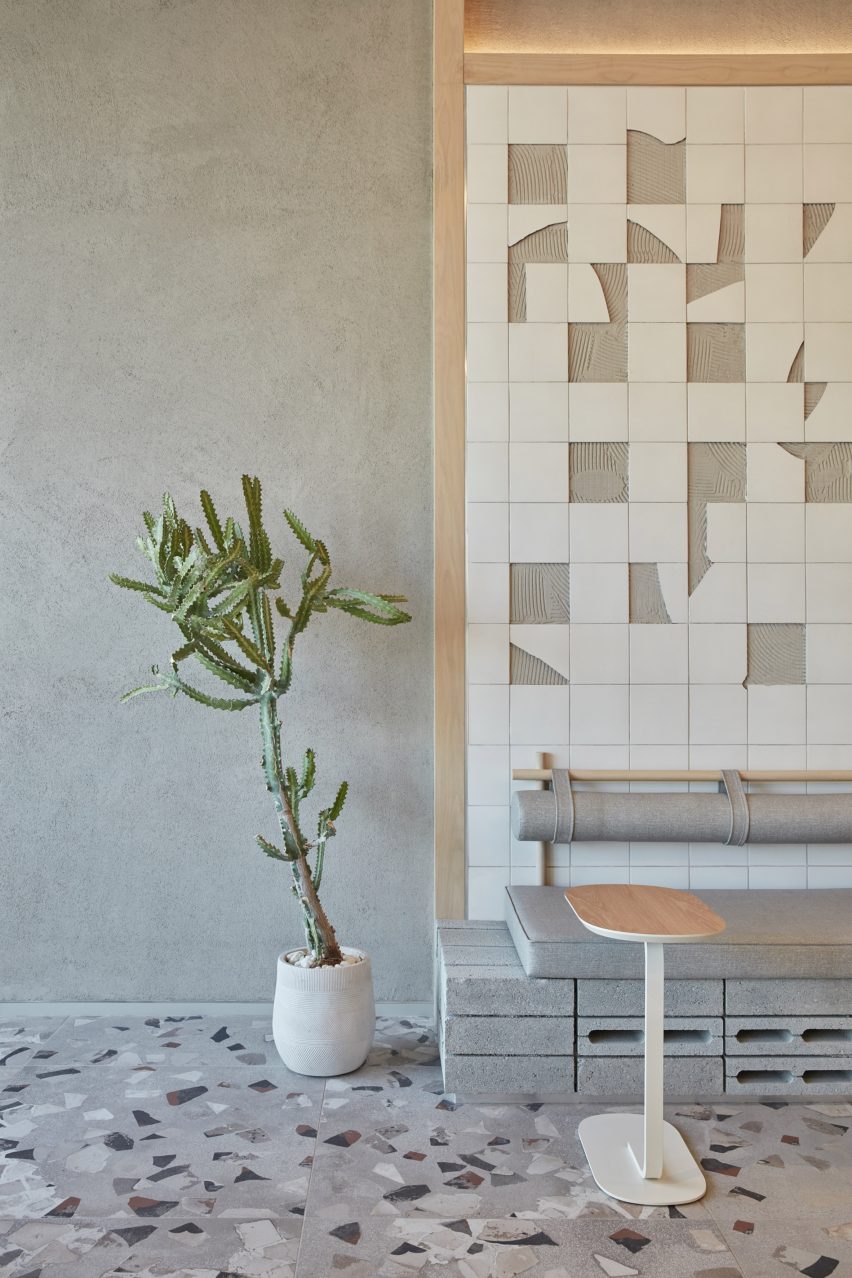
Drop Coffee already has one cafe in Dubai and the plan is for each of the branches to be associated with a different colour, with burnt orange used for Roar Studios' design.
The colour has been dotted throughout the space and was used for seating as well as on clamp-style tables set along one wall for customers who want to have a quick coffee standing up.
Roar Studio was founded in 2013 as Pallavi Dean Interiors by Dean, who was a Dezeen Awards 2020 judge, and rebranded as Roar Studio in 2018. It has previously designed a high-tech learning space for children in Dubai and issued a white paper about the ways in which Covid-19 will impact the design of schools and colleges.
Photography is by Oculis Project.